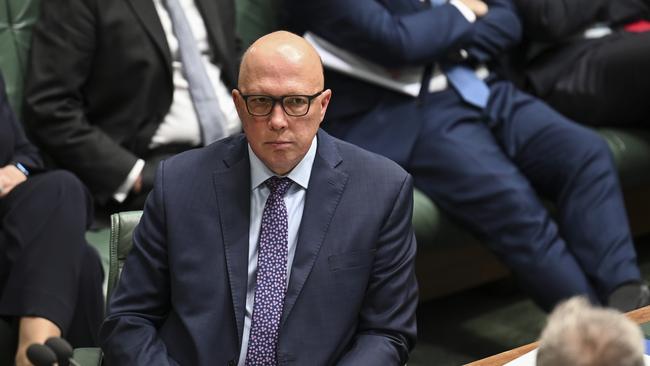
Advice has been offered from all quarters. Any batsman will understand it. A run of outs and poor form leads to a lot of unwanted and confusing advice. Minor changes from well-meaning coaches here and there. A shuffle to the right, a shuffle to the left.
Ultimately the batter becomes so confounded that they forget the essential part of batting is to watch the ball. Subsequently, the batter gets skittled and is further immersed in doubt and hopelessness.
Rumours of the party’s demise are certainly premature. Some of the more optimistic advice has been of the electoral cycles come and go type. The hands of time, the premiership clock will surely come around and hit midnight again.
There are big issues facing Australians, especially in cost of living and in energy supply and the Albanese government doesn’t seem to have a lot of answers to either.
And of course, we must not underestimate Labor’s unique capacity to reach for the caucus pistol and shoot itself in the foot just as things seem to be going so well.
All these matters are pertinent but running a distant second, hoping the leader falls over is not a plan. Hope is not a strategy. Inertia is not a tactic.
Rest assured, Anthony Albanese has his eyes on two terms, three, possibly more as Australia’s Prime Minister, and if the voice referendum gets up with the Coalition opposing it in some form, there are few big hurdles in front of him as things currently stand. The caucus pistol is locked away for now.
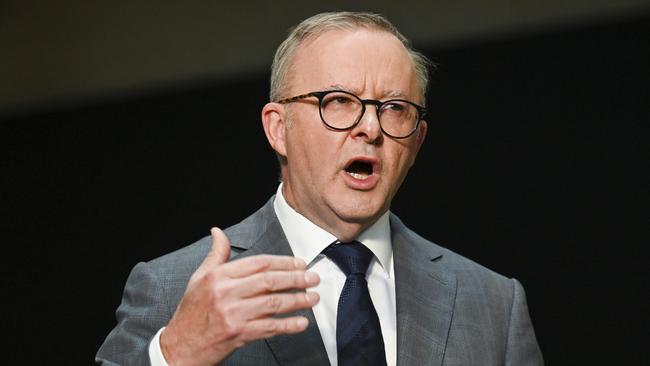
Let’s start with some basics. Peter Dutton must remain as leader of the Coalition and not just to convey some sense of stability. He is the most skilled politician the Liberal Party has and as Opposition leader he has that rare ability of making clear, concise statements to media in the few seconds he has available on any given day.
There are other people in the party who can take it forward. Jane Hume, the co-author of the party’s review into its election loss is another smart performer whose influence is diminished by sitting in the wrong chamber.
They could do with 20 of her in the Lower House. But let’s start with one. Jane Hume should be preselected in Kooyong and face off against the sitting member, Teal independent, Monique Ryan, at the next federal election. It’s a long way off even for the seasoned pundit but I think Hume would win it back for the Liberals.
The next federal by-election on the horizon will be for the seat of Cook when the former PM, Scott Morrison retires. The air is clear for him to do so now that the NSW state election has come and gone. His replacement, if the whispers are right, will be the former NSW Attorney-General Mark Speakman.
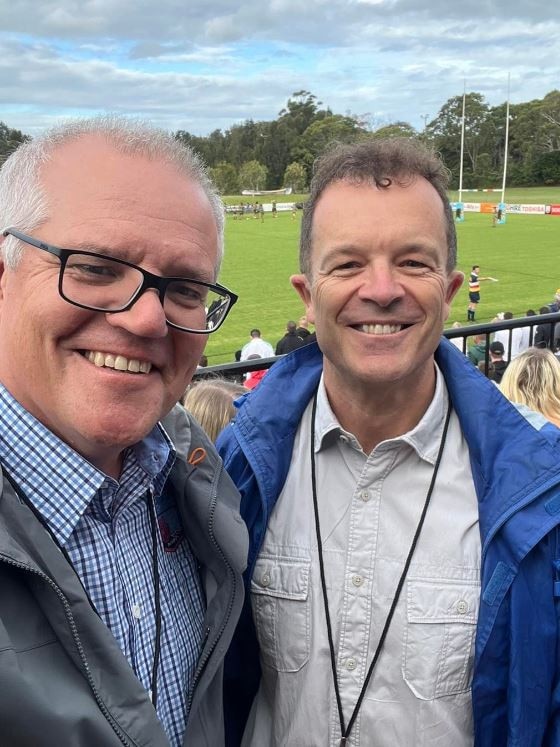
No doubt there will be Twitter clamours on gender if Speakman is preselected but his work at state level has been excellent. I have little doubt he would make an outstanding contribution to the federal parliament and provide much needed fresh blood in the party room.
The Liberals hold Cook by a solid 13 per cent despite a seven point swing against the sitting PM at the last election. There should be no surprises or shock losses there.
With the exception of several anticipated by-elections in NSW (Speakman’s shift from the seat of Cronulla in the NSW Legislative Assembly to Cook in the federal sphere would be one if he decided to run), there are no other tests of the Coalition’s appeal to voters on the horizon until the latter part of 2024 when the people of the territories and Queensland hit the ballot boxes.
For the Liberal Party, no news is good news right now. For every month that goes by, the Albanese honeymoon can be expected to diminish to some degree along the marbles in a jar principle associated with marital bliss (I trust I do not have to explain this).
But these are tweaks. In cricketing terms, a slight change of grip, a shuffle of footwork to the left or right.
While the ideological fixations should be largely ignored, there are members who sit in the party room who are not team players and whose public statements are so far from the thinking of middle Australia that one wonders if they were divined by witch doctors in Djibouti.
The Liberal Party needs to act on these members sooner rather than later because as every day goes by, they do more harm to the party’s brand. Senator Alex Antic from South Australia and senator Gerard Rennick fall neatly into this category.
They declined to offer their votes to the Coalition through much of the pandemic. They are social media junkies obsessed with conspiracy theories.
Just yesterday, a tweet from Rennick hinted that Australia’s population growth was in decline due to excess deaths that I assume he puts down at least in part to vaccine injury.
For the record, Australia’s population grew by 1.6 per cent last year or more than 418000. Even if we exclude Australia’s immigration, the population grew by almost 115000. There were 25,000 excess deaths in 2022 to February 2023. Almost 10000 of those deaths are directly attributable to Covid.
190,394 deaths is circa 19,000 or 11% more deaths than 2021, and circa 28,000 or 17% more deaths than 2020.
— Senator Gerard Rennick (@SenatorRennick) March 31, 2023
This far exceeds the population growth of 2% over that time.
No matter which way you cut it, the jump in deaths deserves an explanation by our government. #auspolpic.twitter.com/GSMGxn3jS6
History doesn’t repeat but it might offer a rhyming couplet within our two-party system. There are lessons to be learned from the dysfunctional ghosts of politics past.
For more than two decades, Labor in Victoria was known as the most doctrinaire and militant of the state Labor branches. The socialist left faction dominated the party at executive and state council levels, beholden to a small number of unions. The situation arose from the Labor split in 1954-55 where Victoria’s right faction and many moderates, too, left the party. The SL dominance was left to fester for more than a decade.
The net effect was Labor became unelectable in Victoria. The taint of extremism around the state branch made Labor unelectable at the federal level, too.
It took federal intervention led by Gough Whitlam – considered a middle class toff by so many within the Victorian branch and the arrival of fresh faces with no factional baggage like John Cain Jr., and John Button to bring about change.
Reform, when it came took courage and time. Whitlam came to power two years after his intervention but in Victoria, after a narrow loss in 1971, Labor would have to wait another decade before it was deemed worthy of the people’s confidence.
Prior to the last election, Senator Rennick told Nine Media neither he nor Senator Antic cared about the polls or being “turfed out of government”.
“Both of us had successful careers before politics, and we will have successful careers when we leave this behind,” he said.
It is a statement so lacking in party discipline it may have well fallen from the mouth of ‘Baghdad Bill’ Hartley, Secretary of Labor’s Victorian branch from 1963 to 1970, whose contribution to keeping Labor off the Treasury benches was without peer.
To Antic and Rennick, winning elections doesn’t matter. What matters is the hollow sanctimony of interminable opposition and the embrace of quackery. If Baghdad Bill was still in the vertical, he would have had them over for tea and scones.
Removing them might be painful, depending on how it is done, but it should be done as a matter of urgency.
The Liberal Party’s fortunes are not so bleak but while it might be a broad church, it’s not a duplex with Luna Park next door.


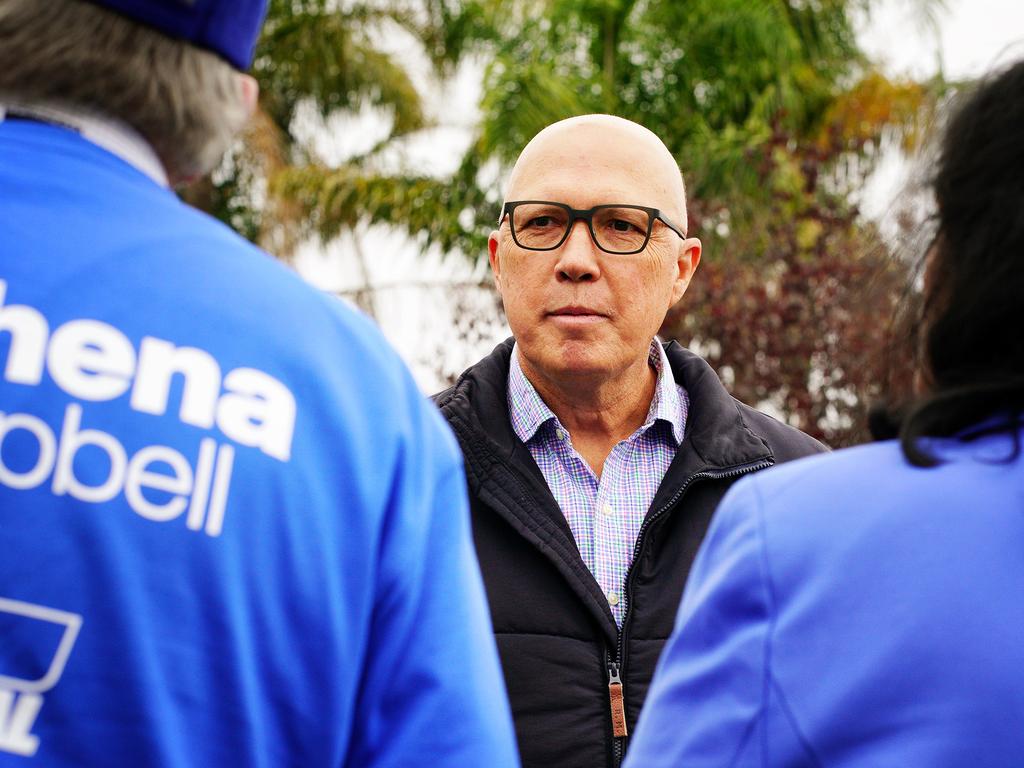
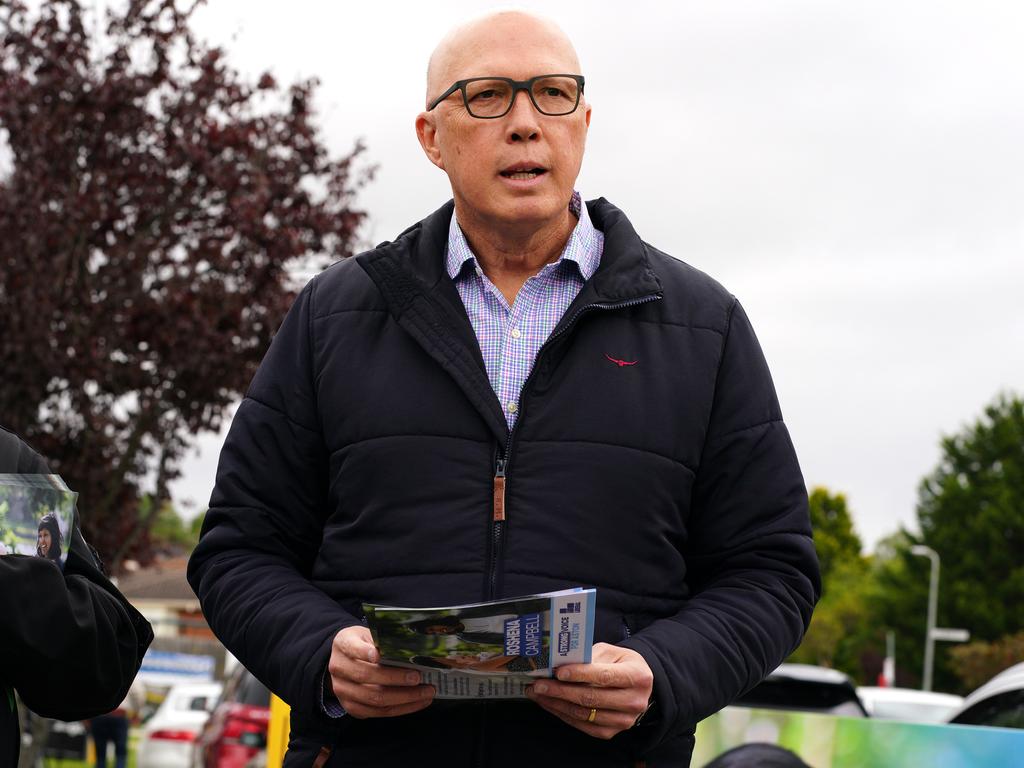



The Aston by-election has come and gone and with it the Liberal Party has been if not buried, then eulogised, often gleefully, more often than Elvis.